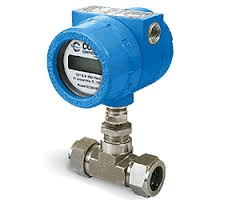Flowmeter Performance
Understanding Flowmeter Performance and Calibration
The importance of understanding your flow metering application and undertaking careful monitoring and maintenance of your flow meter system will ensure your flow readings continue to give repeatable and accurate readings. Having received thousands of flow meters for routine re-calibration, it is often the end users’ lack of knowledge of their application, which creates the largest measurement errors, rather than the errors observed within a flowmeter calibration.

Typical Example
“Mr Plant”, a Maintenance Engineer has just moved to a new company and has inherited a mirage of old, new and modified instrumentation across the plant. For years gone by, the flowmeters have been removed from the pipe work and sent for re-calibration during the summer shutdown. The calibration company undertakes its routine calibration and sends the meter back, ready for installation back into the plant. Great, all systems back underway and everyone’s happy!
Well, all was great until “Mr Plant” comes along and starts to look into the processes involved. Being more of a temperature and pressure instrumentation specialist, he wasn’t quite sure of the flow metering issues, and so contacted a specialist calibration laboratory, dealing with flow meter calibrations. It turns out the meters being used were correctly specified for their application and have been giving excellent low measurement drift year on year. But amazingly they had been sent for calibration for seven years, and calibrated on water, but have been installed in an oil process line running at 30 cSt viscosity. The outcome was a 3 – 5% error on all his flow measurements.
This is an all too occurrent story seen within flow laboratories, which can be easily rectified with a basic understanding of flow metering systems. There are many parameters which can effect a flow meters’ calibration, but remembering a few of the larger contributors will help you achieve a more reliable and accurate performance from your flow system. The key contributors which can affect a flow meters performance are; fluid type, fluid viscosity, fluid temperature and meter installation.
There are now many laboratories offering flow meter calibrations for different types and sizes of flowmeters, but ensuring you have your meter calibrated on the correct operating fluid will play a large part in the accuracy of your flowmeter.
Measurement Traceability
Once you have identified a suitable laboratory for your flow meter calibration, ensure the laboratory has a complete line of traceability for the “Calibration Rig”, not just for a master meter installed within the line. You will find many of today laboratories have reference master meters installed within the calibration line, which they claim to be traceable back to a national standard, where this maybe UKAS, DKD, NMI, etc. This is not sufficient evidence for your line of traceability; you must ensure the whole calibration rig as an integrated system is assessed for all its components of uncertainty, to give a true line of traceability. Using an “accredited” calibration laboratory will ensure these requirements are met, as they are routinely assessed by the approving body.
Article Source: http://EzineArticles.com/1592684
